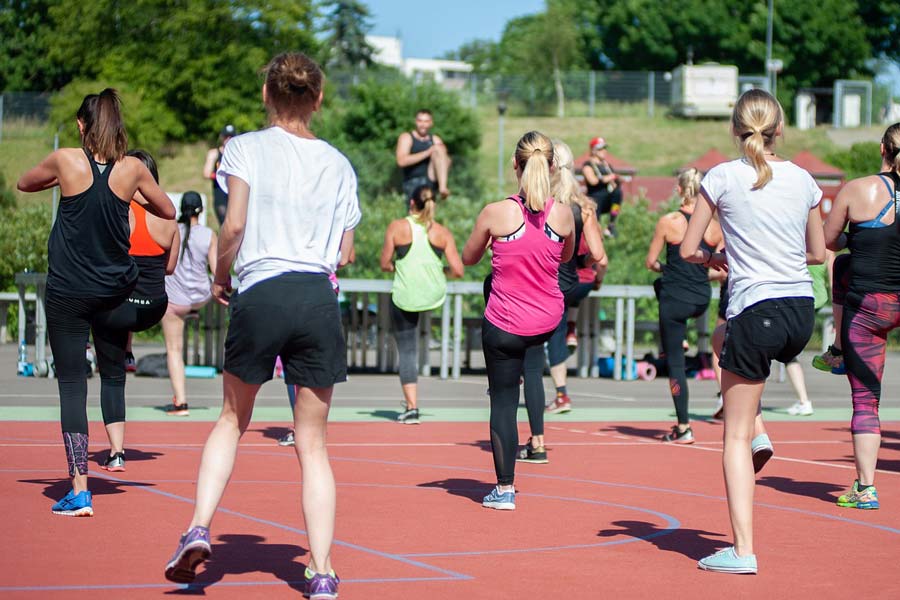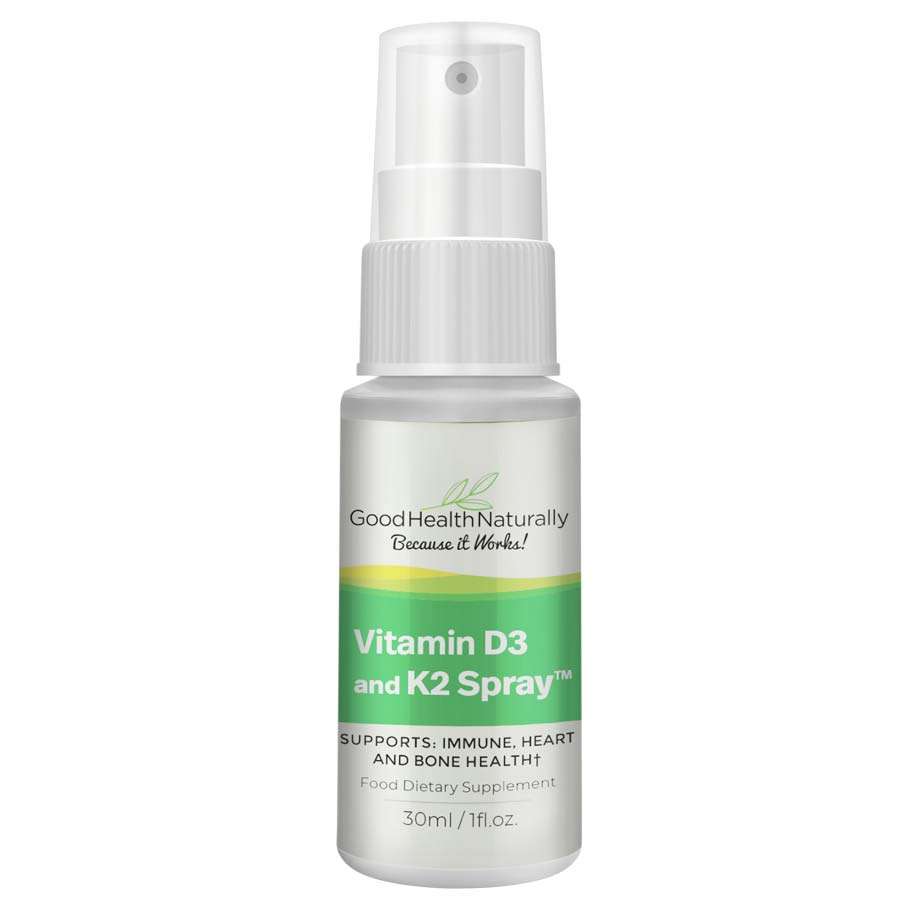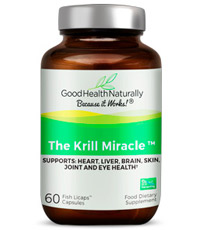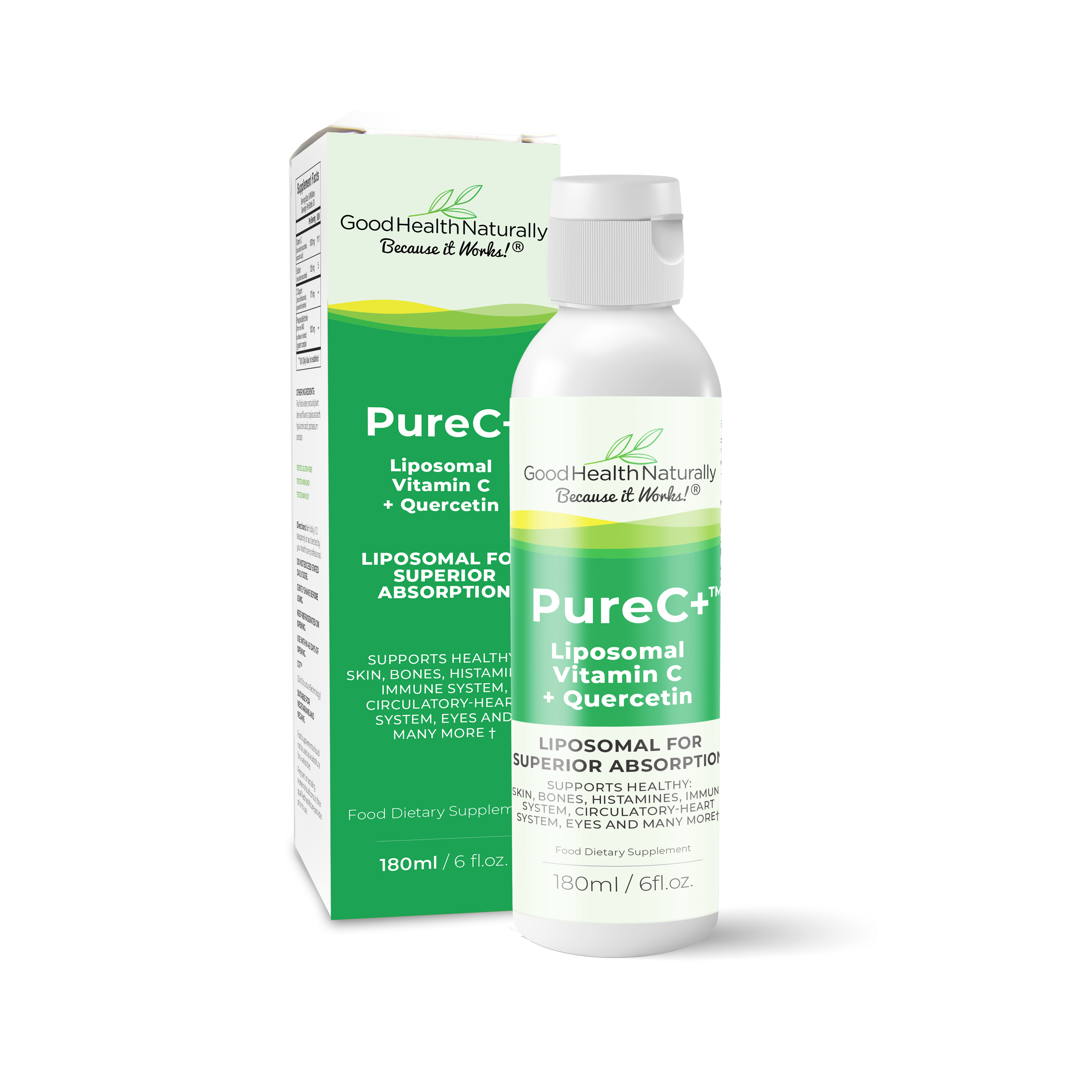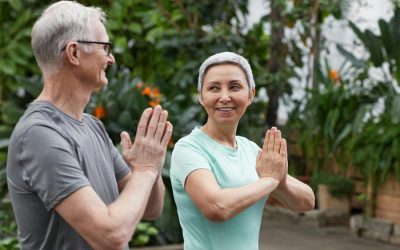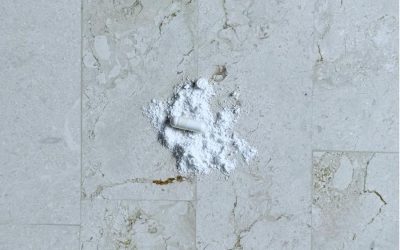This week, to mark World Osteoporosis Day, we’re focusing on how to “Build Better Bones.” An estimated 21.9% of women and 6.7% of men over 50 in the UK have osteoporosis. However, it is known as a “silent” disease because people often don’t have any symptoms and may not even know they have the disease until they break a bone. Osteoporosis is the major cause of fractures in postmenopausal women and older men. Breakages can occur in any bone but happen most often in the hip, spinal vertebrae and wrist.
The body continuously breaks down old bone tissue and forms new to replace it. But for people with osteoporosis, either the new tissue forms too slowly or the old breaks down too quickly. The bone mineral density and mass decrease, meaning the bones lose their strength, becoming thin, fragile and thus more prone to fracture. The good news is there are many steps we can take to build better bones and reduce our risk of developing osteoporosis, and we’ll explore those further in this article.
It’s Never Too Early to Take Action
While it’s usually considered an “older person’s” illness, the underlying causes can stretch back into childhood. It is always worth remembering we form about 90% of our peak bone mass before we turn 20, so that’s the absolute best our bones will ever be. The less strength we have in our late teens, the more likely we are to develop weak bones and osteoporosis later in life. But, no matter what age you are, it is never too early or late to take some action to preserve skeletal strength and build better bones.
Get Exercising
Exercise is one of the best things you can do to improve bone health. Don’t forget they’re living tissue which gets stronger if “worked.” When muscles pull on bones, they respond by renewing themselves and maintaining or improving their strength. As muscles get stronger, they pull harder, meaning bones are more likely to become stronger too.
You don’t have to be a serious weight lifter to reap the benefits. It is generally acknowledged that for optimum bone health, combining two different types of exercise is necessary. The first is weight-bearing exercises with impact. This includes walking, running, dancing or aerobics. The second is muscle strengthening, such as weight training, resistance bands, or even using your body weight. Incorporating both into the weekly regime is the best way to protect against bone loss, improve mineral density, maintain existing structure, increase muscle mass and reduce inflammation.
Eat Bone-Healthy Food
When we think about bone health, calcium is usually the first thing which comes to mind. It’s the most abundant mineral in bones, so it’s essential people get enough in their diets. It is found in leafy green vegetables, soybeans, nuts, sardines and dairy products. But calcium is not the whole story to build better bones. They also need phosphorus, magnesium, boron, Vitamins C, D and K, and proteins.
Vitamin K is essential in bone health by reducing calcium loss and helping minerals bind to the bones. It can be found in green veg like asparagus, cabbage, sauerkraut, cheese, and natto. It can also be synthesised by bacteria in the gut.
Vitamin D helps the body absorb calcium. Research shows people with vitamin D deficiencies have a higher risk of losing bone mass. A person can absorb vitamin D through moderate sun exposure. But if living in the UK or exposure to sunlight is scare, you may need to supplement, especially during winter.
Magnesium and zinc are also both essential minerals which provide vital support for bone health and density. Magnesium helps activate vitamin D so that it can promote calcium absorption. Zinc exists in the bones, and it promotes bone growth and helps prevent the bones from breaking down. Foods rich in magnesium and zinc include nuts, legumes, seeds, whole grains and leafy greens.
Pile Up the Veggies
The wonderfully named “Scarborough Fair Study” found if postmenopausal women increased their consumption of certain vegetables, herbs and fruit, it helped reduce bone turnover and urinary calcium loss. The foods recommended were just like in the song parsley, sage, rosemary, and thyme. Plus, dill, garlic, oranges, prunes, broccoli, lettuce, tomatoes, cucumber, green beans, onions and mushrooms. Women following the plan for three months experienced decreased acidity, inflammation, and oxidative stress in the body, which can lead to healthy, denser, and stronger bones.
Vitamin C
Studies suggest low vitamin C may be associated with the development of osteoporosis and increased risk of fracture. The vitamin found in citrus fruit, bell peppers, and berries seems to benefit bone growth and reabsorption. It may also help stimulate collagen in the bone, leading to increased bone mineral density.
Punch-up the Protein
Getting adequate protein is essential, as it plays a role in bone health and density. A long-term study of 144,000 postmenopausal women found that those who ate an increased amount of protein saw a boost in overall bone density and experienced fewer forearm fractures.
Good Fats
Including plenty of healthy fats in the diet, such as oily fish, avocados, nuts, and flaxseeds, is crucial for healthy bones. Omega-3 is an essential fatty acid our bodies can’t make, so we need to ensure we get it from food or supplementation. Numerous studies suggest it plays a role in maintaining bone density, helps increase bone mineral content and reduces the risk of osteoporosis.
However, most people who eat a Western diet are deficient. The best source is oily fish, which contains the active EPA and DHA forms. Plants like nuts, seeds and olives contain the ALA form, which the body needs to convert into EPA or DHA. This process is inefficient, with only a small percentage becoming EPA and DHA.
Maintain a Healthy Weight
People who are underweight have a higher risk of developing bone disease, while excess weight puts extra stress on fragile bones. Rapid weight loss can be an issue, too, as when a person loses weight, they can also lose bone density. Unfortunately, the same does not apply to weight gain, as bone density is not improved or restored.
Quit Negative Behaviour
All kinds of diet and lifestyle behaviours can have an adverse effect on bone health. Stop smoking, as research shows it may be a significant risk factor for bone loss. Avoid excessive alcohol use, as heavy consumption interferes with the body’s ability to absorb and regulate calcium, vitamin D, and hormones. Poor calcium absorption can lead to decreased bone density and may also increase the risk of fractures.
Conclusion
There is so much which can be done to build better bones, so start taking some action today. Get exercising, include plenty of bone-nourishing foods and consider a vitamin D supplement.
Product Recommendations
https://www.osteoporosis.foundation/sites/iofbonehealth/files/scope-2021/UK%20report.pdf
https://theros.org.uk/information-and-support/bone-health/exercise-for-bones/
https://pubmed.ncbi.nlm.nih.gov/25856221/
https://www.ncbi.nlm.nih.gov/pmc/articles/PMC4833003/
https://pubmed.ncbi.nlm.nih.gov/24552750/
https://www.ncbi.nlm.nih.gov/pmc/articles/PMC3899785/
https://www.menopausecentre.com.au/information-centre/articles/how-omega-3-can-provide-relief-for-menopausal-symptoms/
https://pubmed.ncbi.nlm.nih.gov/16828546/
https://www.ncbi.nlm.nih.gov/pmc/articles/PMC7071508/

